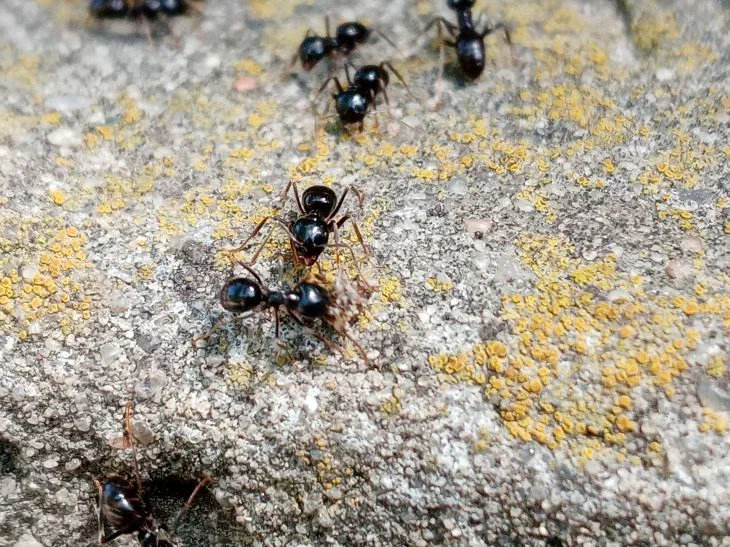Ants in the garden can be both helpers and a problem. On the one hand, they loosen the soil, on the other hand, they protect aphids and can damage plants.
If their population gets out of control, it is important to know how to deal with insects safely and effectively.
Why Ants Become a Problem
Ants live in colonies and actively protect aphids, which secrete a sweet liquid called honeydew. Protected aphids quickly reproduce, sucking the juices out of plants and weakening them.
In addition, ants are capable of building anthills directly on the beds, damaging the root system of plants. The damage from them is especially noticeable on young shoots and berry crops, where ants damage buds and fruits, attracting other pests.
Natural methods of control
For gardeners concerned about soil health, chemicals are not always the best option. Natural remedies such as ash, cinnamon or vinegar repel ants.

Sprinkle ash or cinnamon in places where they are active. Vinegar can be used as a solution: 1 glass per liter of water - treat paths and places where ants are often seen.
Repellent plants such as mint, mugwort or tansy also work well. Plant them along the edges of your garden to keep insects away from your beds.
Bait and Traps
Ants are fond of sweets, and this can be used. Mix sugar with boric acid (1:1) and leave in small containers near anthills. Boric acid does not kill the insects immediately, allowing the workers to carry the poison to the nest, where it affects the entire colony.
If boric acid is unavailable, try cornmeal, which swells in the ant's stomach, killing it. Another option is to set sticky tape traps around trees or bushes to prevent the insects from accessing the plants.
Chemical and radical methods
If natural methods do not help, chemicals come to the rescue. Modern insecticides are safe for plants, but they should be used strictly according to the instructions. Preparations based on diazinon or cypermethrin are effective against ants, but they should be used at the beginning of the season or after harvesting.
If the anthill is large and deeply embedded in the soil, you can pour boiling water or a salt solution over it. However, this method is only suitable for places where there are no cultivated plants.
Fighting ants requires a comprehensive approach. It is important to choose methods that cause minimal harm to the garden ecosystem. Start with natural methods, and if necessary, move on to chemical ones.
Remember that ants are also a part of nature, so it is worth striving for a reasonable balance to keep your plants healthy.








